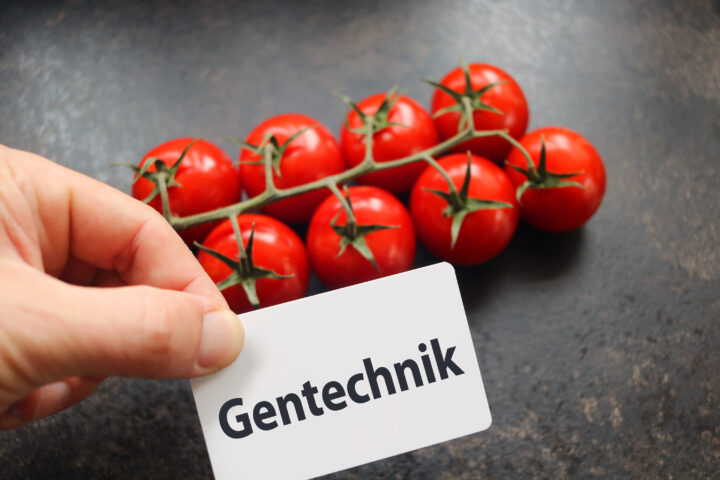
The Return of Price Sensitivity
In the past few years, consumer attention has centered on organic and high-end products, with eco-friendliness serving as a key decision-making factor. Now, rising inflation is shifting that focus. Increasingly, price is taking center stage, a trend highlighted by the growth in sales of more budget-friendly brands. This shift also draws attention to the economic and social aspects of sustainability.
Sunday, February 26, 2023
As reported by "NZZ am Sonntag," Switzerland is experiencing a shift from an "organic boom to a budget boom." Despite its relatively successful fight against inflation, Switzerland has seen the cost of many goods—especially food—rise sharply. For example, in 2022, the price of eggs soared by 14%, cheese by 6%, and bread by 4%, compared to an overall inflation rate of 2.8%. Consumers are noticing and reacting, gravitating towards more affordably priced products. The budget lines "M-Budget" from Migros and "Prix Garantie" from Coop are reaping the benefits, with especially strong sales growth. Discount retailers like Aldi and Lidl are also confirming a consumer trend toward more cost-effective options.
A Pivot in Consumer Priorities
This changing landscape can be seen as a pivotal moment in consumer behavior. Major retailers have been consistently expanding their range of organic and premium products for years. However, according to a survey conducted by the Swiss shopping list app "Bring," price is now overwhelmingly the most critical issue for shoppers. Over 70% of respondents expressed concern about rising costs, while only a third still prioritize eco-friendliness. Supporting this trend, sales numbers for organic goods have stagnated; Bio Suisse will release its data in April, but neighboring Germany has already reported a contraction in its organic market for the first time in 2022.
The Intersection of Price and Sustainability
The recent bankruptcy of the organic chain Müller serves as a case in point for this changing landscape. It underscores the reality that consumers have a limit to how much they are willing to pay, even for eco-friendly products. Sustainability isn't just about being green; it also needs to be economically viable. If a product is environmentally superior but prohibitively expensive, it can't really be considered sustainable. This sentiment was highlighted in our latest newsletter. Additionally, governmental policies and increasing regulations are adding to the cost burden on both producers and consumers. Babette Sigg, the President of the Swiss Consumer Forum, points out in “NZZ” that current trends towards more regulation and consumer education are only serving to push prices higher.
A Comprehensive View of Sustainability
Sustainability discussions often overlook the productivity aspect of agriculture. True sustainability requires efficient use of resources—land, water, fertilizer, pesticides, labor, and money. Essentially, any agricultural activity is a modification of nature. While the belief that organic farming is beneficial for both the climate and biodiversity is widespread, emerging studies are questioning this notion. For example, the larger land footprint of organic agriculture reduces the availability of land that could absorb greenhouse gases. A study from the UK also suggests that such expansive land use negatively impacts biodiversity more than intensive agriculture on smaller plots would. Given the ever-increasing global population, agriculture must aim for both economic and ecological efficiency, ensuring both profitability for farmers and affordability for consumers, while also acknowledging the social implications.
Sources
Related articles

Residue is not the same as residue
Painkillers like Voltaren are a blessing for us – yet in our rivers they can harm fish. If these were crop protection products, calls for bans would be immediate. It becomes clear that we are applying double standards.

ARTE documentary: Genetic engineering in organic farming?
The ARTE documentary “Genetic engineering in organic farming?” examines key controversial questions of modern agriculture: Is the general exclusion of new breeding technologies still up to date? Can the resistance of organic farming be justified scientifically?

The Great Suffering of Farmers
Fire blight, Japanese beetles, or grapevine yellows – farmers in Valais, too, are increasingly feeling helpless in the face of the threats posed by nature. More and more often, they lack the means to effectively protect their crops. This makes it all the more important for the Federal Council to place a pragmatic balancing of interests at the forefront when setting threshold values.

'Tomatoes on your eyes'
The submitted “Food Protection Initiative” calls for “GMO-free food.” Leaving aside this illusory demand, its adoption would mean more bureaucracy, more trade barriers, and less innovation. The Swiss Farmers’ Union describes the proposal as “unnecessary” and warns of a setback to the goal of achieving an even more sustainable agriculture.

